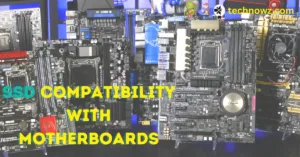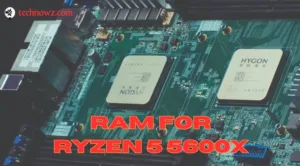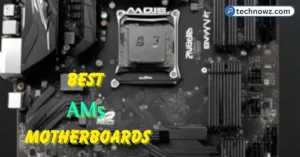Quantum computing is revolutionizing how we process and secure information, opening new frontiers in cryptography, machine learning, and hardware advancements. As this technology evolves, understanding its core components becomes essential for professionals and enthusiasts alike.
In this article we will explore about Quantum Cryptography, Quantum Machine Learning, and Quantum Computing Hardware.
Table of Contents
ToggleQuantum Cryptography: Securing the Digital World
What is Quantum Cryptography?
Quantum cryptography leverages the principles of quantum mechanics to create ultra-secure communication systems. Unlike classical encryption, which relies on complex mathematical algorithms, quantum cryptography uses quantum key distribution (QKD) to ensure data security at an unprecedented level. Traditional encryption methods, such as RSA and ECC, could be broken by powerful quantum computers, making quantum cryptography the future of secure communication.
How Does It Work?
Quantum cryptography relies on the behavior of qubits and the principle of quantum entanglement. The most common method, BB84 protocol, allows two parties to securely exchange encryption keys, making any interception instantly detectable. The key advantage is the no-cloning theorem, which prevents eavesdroppers from copying quantum information without altering it.
Applications of Quantum Cryptography
- Secure Communications: Governments and financial institutions use QKD to protect sensitive data.
- Post-Quantum Security: As quantum computers evolve, they pose a threat to traditional encryption. Quantum cryptography is essential to counter this.
- Military & Defense: Ensuring secure transmission of intelligence and classified information.
- Blockchain Security: Strengthening cryptographic security in decentralized finance (DeFi) and smart contracts.
Challenges in Quantum Cryptography
Despite its potential, quantum cryptography faces hurdles such as high costs, infrastructure requirements, and limited scalability. However, ongoing research is driving advancements in making it more accessible. Companies like ID Quantique and Toshiba are developing real-world quantum cryptographic solutions, paving the way for widespread implementation.
Quantum Machine Learning: The Future of AI
What is Quantum Machine Learning (QML)?
Quantum machine learning (QML) combines quantum computing with artificial intelligence to solve problems that are beyond the reach of classical computers. By leveraging superposition and entanglement, QML can enhance traditional machine learning algorithms and process massive amounts of data exponentially faster.
How Quantum Computing Enhances AI
- Faster Data Processing: Quantum computers process massive datasets more efficiently than classical computers.
- Optimized Algorithms: Quantum-enhanced AI models can improve decision-making processes.
- Better Pattern Recognition: QML can recognize complex patterns in data with higher accuracy.
- Dimensionality Reduction: Quantum-based feature selection enhances AI’s ability to analyze high-dimensional datasets.
Real-World Applications of QML
- Healthcare: Quantum-enhanced drug discovery and personalized medicine by simulating molecular interactions.
- Finance: Improved risk assessment, fraud detection, and portfolio optimization.
- Supply Chain Optimization: More efficient logistics and demand forecasting.
- Natural Language Processing (NLP): Enhancing chatbot interactions and AI-driven content analysis.
Case Study: Google’s Quantum AI Breakthrough
In 2024, Google’s Sycamore processor demonstrated quantum supremacy, solving a problem in 200 seconds that would take classical supercomputers 10,000 years. This breakthrough signifies the potential of QML in real-world applications.
Challenges and Limitations
QML is still in its infancy, with limited hardware and complex programming requirements. Quantum algorithms, such as Variational Quantum Eigensolver (VQE) and Quantum Support Vector Machines, need further optimization. However, as quantum hardware evolves, its impact on AI will be revolutionary.
For more insights read our blog post Research & Future of Quantum Computing.
Quantum Computing Hardware: The Backbone of Quantum Technology
Understanding Quantum Hardware
Unlike classical computers that use binary bits, quantum computers use qubits, which can exist in multiple states simultaneously. This unique capability enables them to solve problems much faster than traditional systems. Quantum coherence and error correction are major challenges in making practical quantum computers.
Types of Quantum Hardware
- Superconducting Qubits (used by IBM, Google, and Rigetti Computing)
- Trapped Ions (used by IonQ and Honeywell)
- Topological Qubits (being explored by Microsoft for greater stability)
- Photonic Quantum Computing (leverages light particles for quantum operations)
Key Hardware Components
- Quantum Processors: The core of quantum computing, designed to handle complex calculations.
- Cryogenic Systems: Maintains qubits at near-absolute zero temperatures to reduce errors.
- Quantum Gates & Circuits: Essential for performing quantum operations.
- Quantum Error Correction: Techniques like surface codes and Shor’s algorithm aim to reduce its errors.
Advancements in Quantum Hardware
- Google’s Quantum Supremacy Experiment: Demonstrated quantum computers outperforming classical supercomputers.
- IBM’s Quantum Roadmap: Plans for 1,000+ qubit systems by 2030.
- Commercial Quantum Cloud Services: Companies like AWS, Microsoft, and Google offering cloud-based quantum computing access.
- D-Wave’s Quantum Annealing: A practical approach to solving optimization problems.
Future Outlook: Towards Scalable Quantum Computing
Despite significant progress, achieving fault-tolerant quantum computing remains a challenge. Researchers are exploring logical qubits and quantum error correction to improve stability. As advancements continue, quantum computing could revolutionize industries like materials science, pharmaceuticals, and artificial intelligence.
If you want to learn deep about Quantum Computing then read our blog post Unlocking Quantum Computing: Concepts, Innovations and Impact.
Final Thoughts
Quantum computing technologies are rapidly evolving, offering groundbreaking advancements in security, artificial intelligence, and hardware development. While challenges remain, ongoing research and innovation are paving the way for widespread adoption. As industries integrate quantum capabilities, professionals who understand these technologies will be at the forefront of the next computing revolution.
FAQs (Frequently Asked Questions)
Quantum computing is a type of computing that uses qubits, which can exist in multiple states simultaneously, allowing for faster problem-solving than classical computers.
Quantum cryptography uses quantum mechanics principles, such as quantum key distribution (QKD), to create highly secure communication channels that cannot be intercepted without detection.
Quantum computing accelerates machine learning algorithms, improves pattern recognition, and enhances optimization processes, making AI systems more powerful and efficient.
QML is used in healthcare (drug discovery), finance (risk assessment), logistics (supply chain optimization), and NLP (chatbots and content analysis).
Key types include superconducting qubits (IBM, Google), trapped ions (IonQ, Honeywell), topological qubits (Microsoft), and photonic quantum computing.






